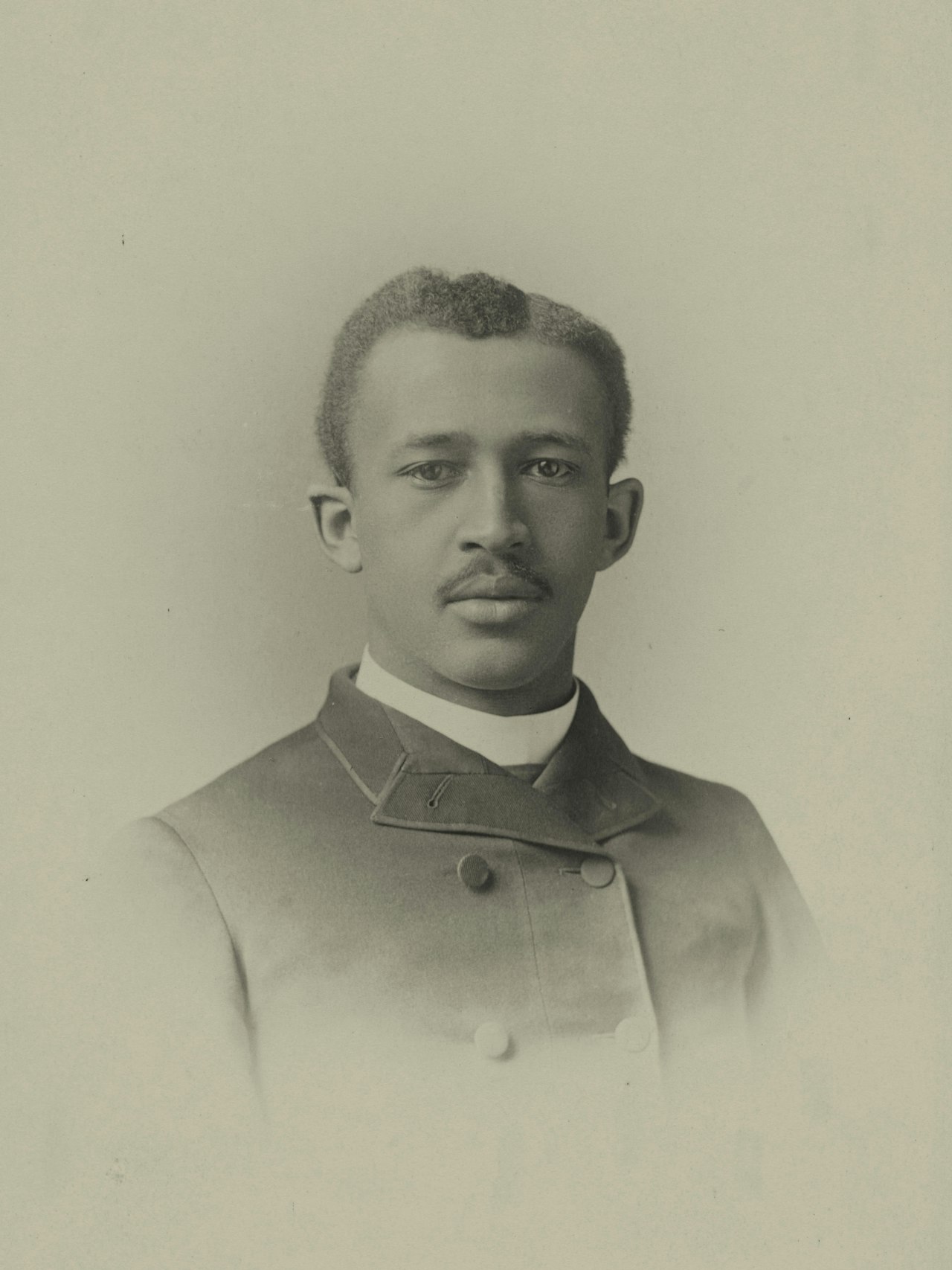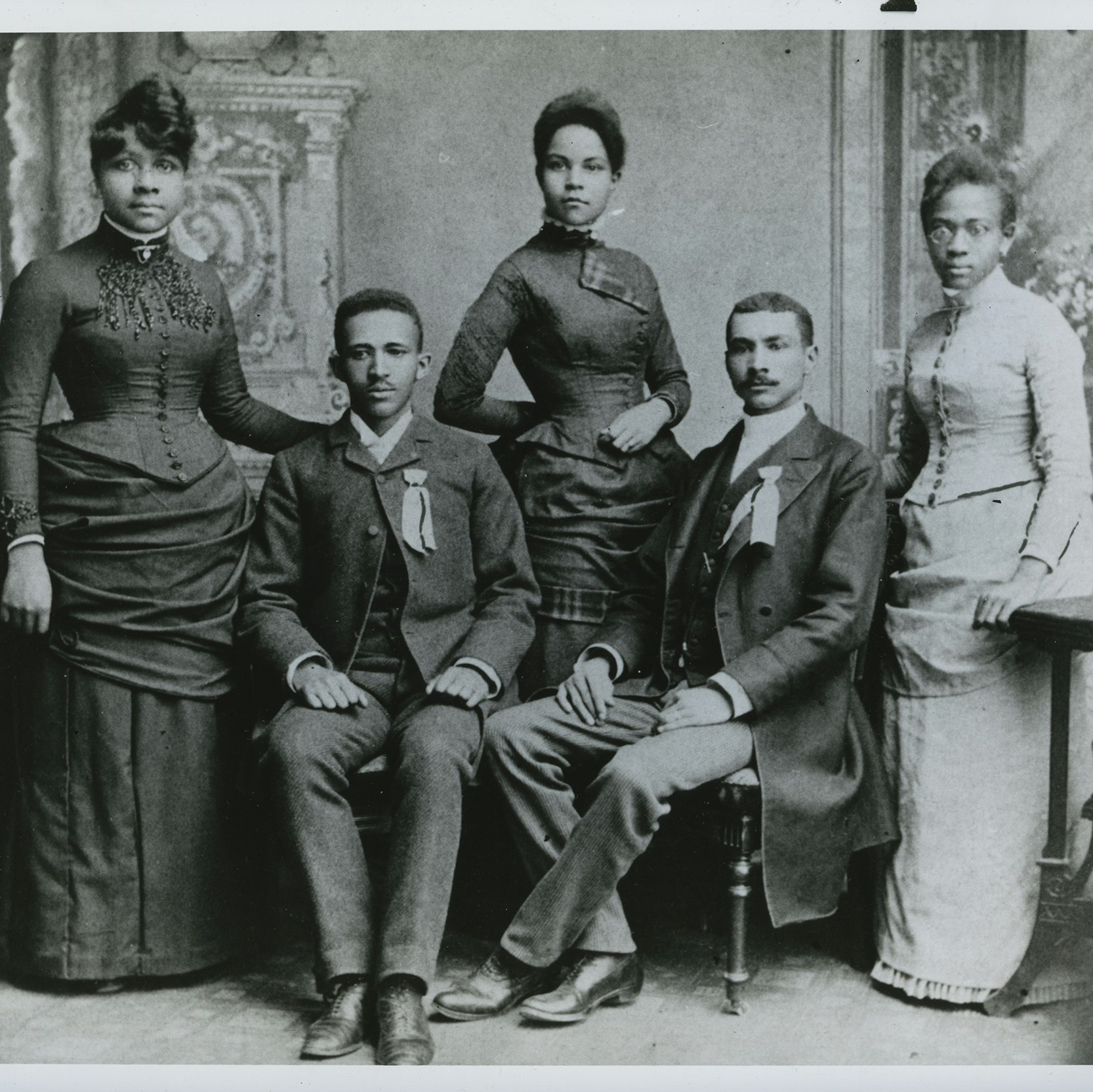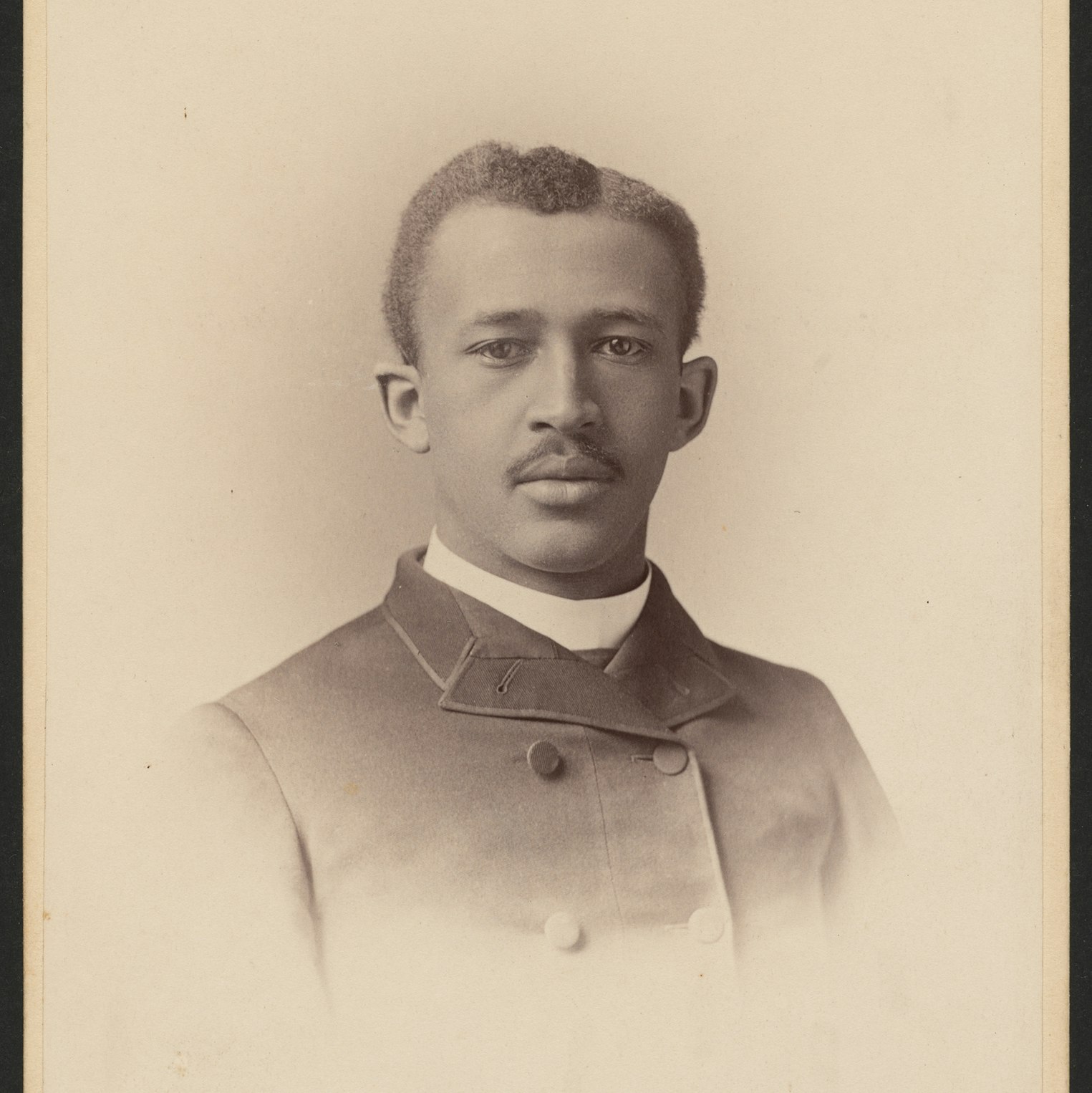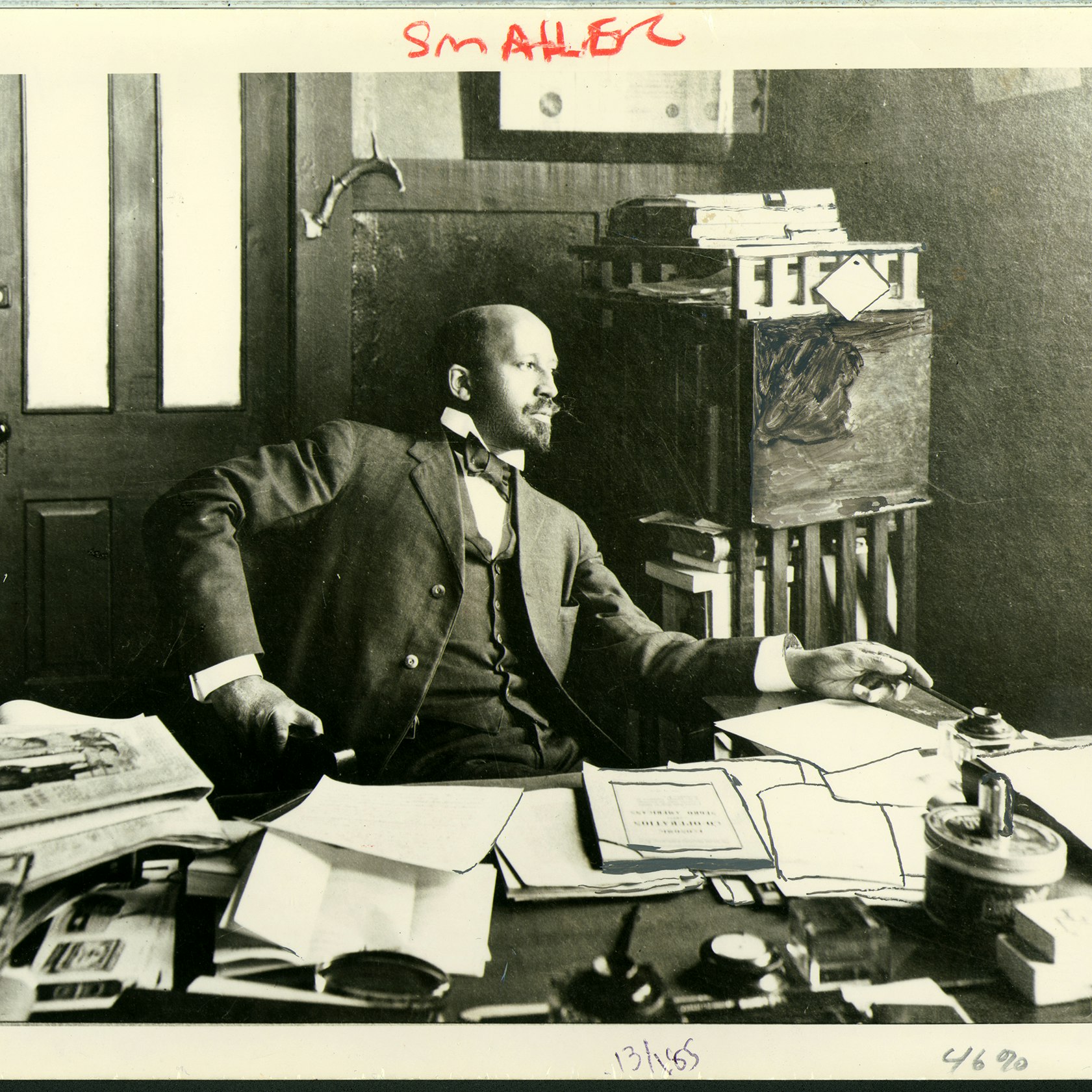W. E. B. Du Bois
W. E. B. Du Bois, the first Black person to earn a PhD from Harvard, used his talent and intellect to pave a path toward racial uplift.
W. E. B. Du Bois was a scholar, public intellectual, author, orator, and activist who used his powerful voice and influence to illuminate issues of race, racism, and Black consciousness. He is also one of Harvard’s best-known graduates. Co-founder of the National Association for the Advancement of Colored People and editor of its magazine, the Crisis, Du Bois authored dozens of books examining the Black experience in the United States, including his seminal collection of sociological essays, Souls of Black Folk.
Du Bois taught at Atlanta University (now Clark Atlanta University), was active in the Pan-Africanism movement, and used various platforms to challenge Jim Crow segregation and racial oppression. He also engaged in fierce debates with prominent contemporaries like Frederick Douglass and Booker T. Washington on the best way to achieve racial equity and empowerment.
An Extraordinary Experience
Born three years after the end of the Civil War, Du Bois grew up in predominately white Great Barrington, Massachusetts, a small, rural town with an even smaller Black population. His childhood in Great Barrington was a central influence in his life, as was his mother, Mary, who cultivated a young Du Bois’s understanding of what it meant to be Black in America.
In 1885, Du Bois left home for Fisk University in Nashville, Tennessee. In Nashville, for the first time in his life, Du Bois felt the embrace of a large Black community. He also witnessed firsthand a level of overt racism he had not encountered before.
“It was to me an extraordinary experience. I was thrilled to be for the first time among so many people of my own color or rather of such various and such extraordinary colors, which I had not seen before, but who seemed close bound to me by new and exciting ties,” he recalled decades later in a convocation address at Atlanta University. “The three years here were years of growth, strength and expanding ambition. I learned new things about the world. I came in contact for the first time with a sort of violence that I had never realized in New England.”
Upon graduation from Fisk and with financial assistance from his family and supporters as well as Harvard, Du Bois headed to Cambridge in 1888 with the goal of earning a PhD in philosophy.
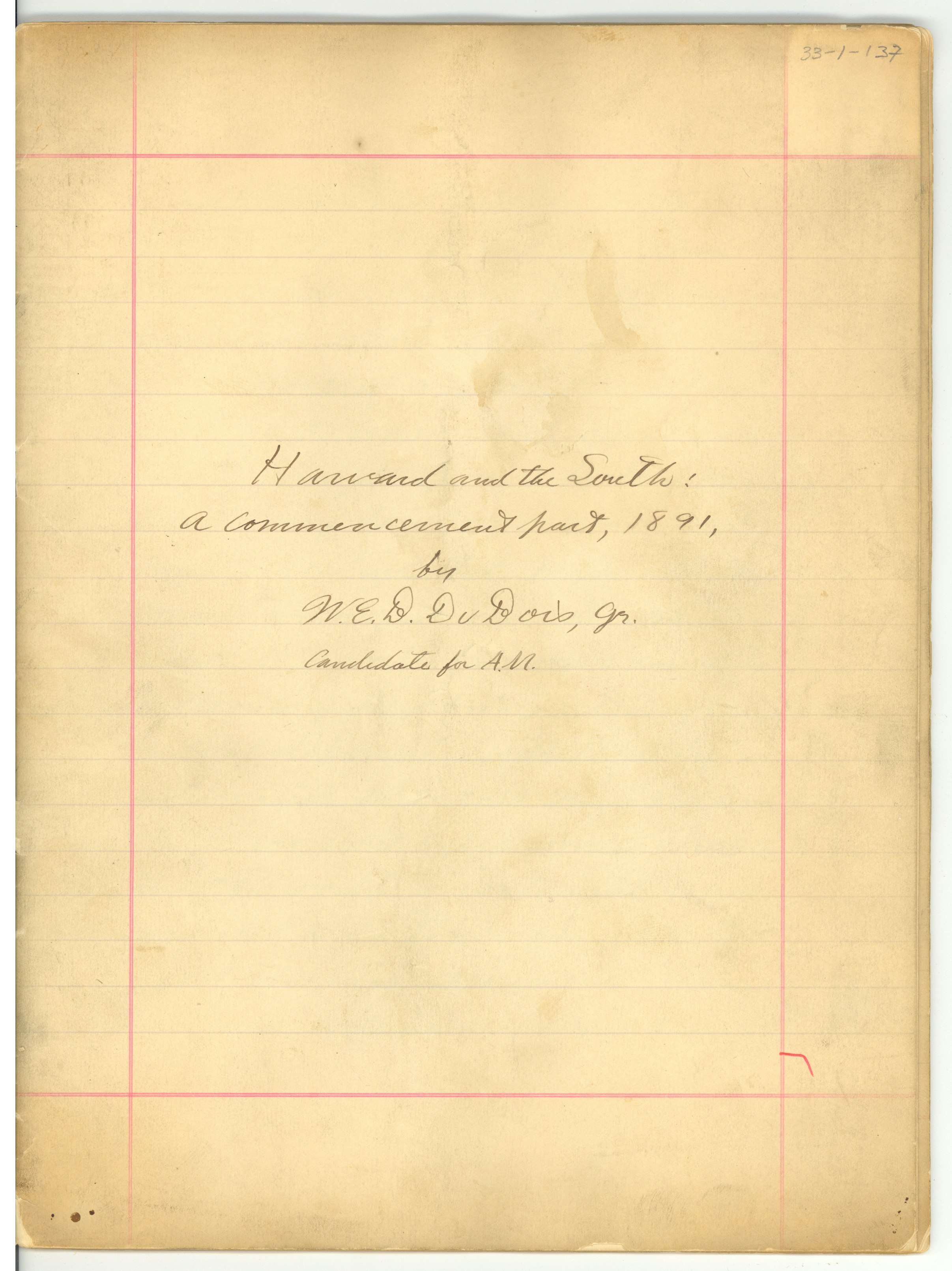
In a graduate school paper titled “Harvard and the South,” Du Bois noted that the “Northern student of Southern affairs . . . wavers between calling the whites rascals, or the Negroes idiots.” Challenging his classmates’ stereotypes, he argued: “With as little personal bias as could be expected under the circumstances, I respectfully submit that he need do neither.” W. E. B. Du Bois Papers, Robert S. Cox Special Collections and University Archives Research Center, UMass Amherst Libraries
In But Not Of
At Harvard, Du Bois was thrilled to have access to professors renowned in their fields, and to the University’s impressive facilities. But DuBois, forced to enter Harvard as a College junior and complete a second bachelor’s degree before continuing on to graduate studies, had no illusions about how he would be received on campus. In “A Negro Student at Harvard at the End of the 19th Century,” he wrote:
“To make my own attitude toward the Harvard of that day clear, it must be remembered that I went to Harvard as a Negro, not simply by birth, but recognizing myself as a member of a segregated caste whose situation I accepted. But I was determined to work from within that caste to find my way out.” He famously reflected that he was “in Harvard but not of it.”
Unable to afford to live on campus, Du Bois sought private lodging and found a room that suited both his taste and his budget; a house owned by a “colored woman from Nova Scotia” located a mile from campus at 20 Flagg Street. “My room is, for a college man’s abode very ordinary, indeed,” he wrote at the time, but it was “pleasantly situated” on the second floor with a bay window and enough room to start building a library. “In this commonplace den I am quite content,” Du Bois said of what would be his home for four years.
He was deliberate in his choice not to pursue close relationships with many of his white fellow students, whom Du Bois believed had little desire to befriend him. Had he matriculated at Harvard immediately after graduating from his integrated high school in Great Barrington, and not ventured to Tennessee, he wrote, he would have sought those friendships “and been disappointed and embittered by a discovery of social limitations to which I had not been used.” Instead, he largely made friends with Black students at Harvard and other local institutions and with the “colored folk of Boston and surrounding towns.”
“With them I led a happy and inspiring life. There were among them many educated and well-to-do folk, many young people studying or planning to study, many charming young women. We met and ate, danced and argued, and planned a new world,” he wrote.
This approach was “self-protective coloration, with perhaps an inferiority complex, but with belief in the ability and future of black folk.” And while Du Bois’s fellow Black students tended to be firmly on the side of integration, Du Bois was steadfast in his “dream of a self-sufficient Negro culture, even in America.”
Du Bois did not isolate himself completely, however. He joined the Philosophical Club and the Foxcroft dining club, the latter providing a place where students who lived off campus could study during the day and eat inexpensive meals. A singer, he tried out for the glee club but was denied his place. The club members reasoned that it would be too difficult to tour nationally with a Black member.
Sparkling Orator
To support himself during his studies, Du Bois participated in oratory competitions. In his first year at Harvard, Du Bois won second place in the competition for the Boylston Prize in Elocution. First prize went to Clement G. Morgan, another Black student who, because of this victory—and despite, what Du Bois described as the outrage of whites across the nation—was selected to be class orator.
According to Du Bois, Morgan’s success inspired several other colleges to confer similar honors on their Black students. The following year, it was Du Bois who took first place in the Boylston competition. He was also one of five seniors chosen to speak at Commencement, where he delivered a bold address on Jefferson Davis “with the deliberate intent of facing Harvard and the nation with a discussion of slavery as illustrated in the person of the president of the Confederate States of America.”
Bishop Henry C. Potter wrote in the Boston Herald that after hearing Du Bois’ address, “Here is what an historic race can do if they have a clear field, a high purpose, and a resolute will.” Potter was not alone. The audience’s reaction was so positive that Du Bois later wrote that he “walked home on pink clouds of glory.”
Du Bois excelled academically and got along well with his professors, some of whom befriended him invited him into their homes. While always aware of the power dynamic between white professor and Black student, Du Bois observed, “they were on the whole glad to receive a serious student, to whom extracurricular activities were not of paramount importance, and one who in a general way knew what he wanted.”
What DuBois wanted above all was to become a philosopher. And he believed that studying at a German university was a prerequisite for achieving that lofty goal and gaining recognition in the rarefied field.
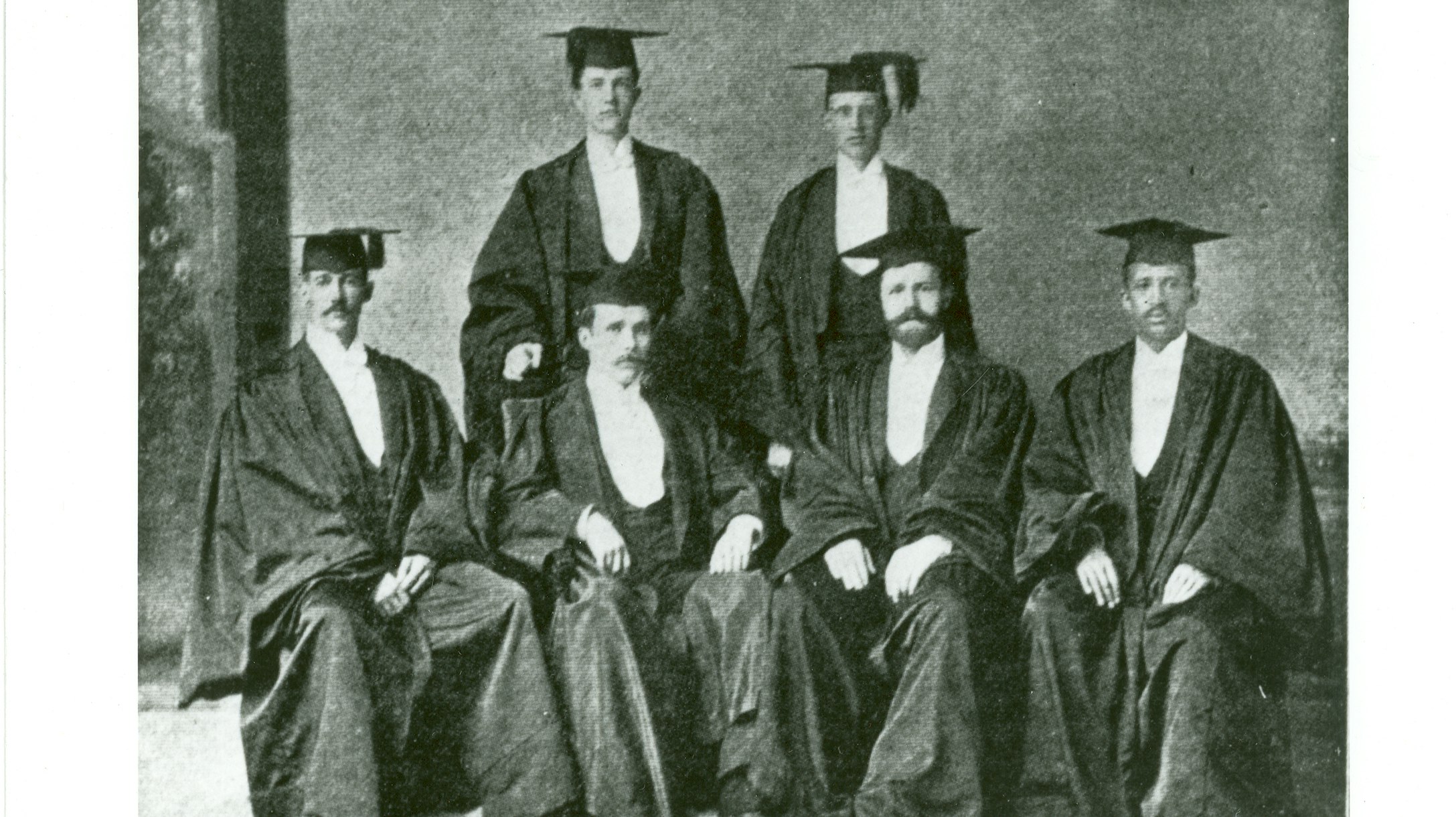
When Du Bois (seated, far right) and his fellow Black student Clement G. Morgan were selected as Commencement speakers, a faculty member moved to consult the Harvard Corporation as to whether it was appropriate to select two Black students for this honor. Their answer was no: Du Bois spoke, but Morgan did not. W. E. B. Du Bois Papers, Robert S. Cox Special Collections and University Archives Research Center, UMass Amherst Libraries
No Was Not an Option
Without viable prospects for Harvard scholarships or fellowships to study in Europe, Du Bois learned that the John F. Slater Fund, headed by former US President Rutherford B. Hayes, was seeking “colored men worth educating,” in order to fund their studies in the United States and abroad. Du Bois applied, but Hayes responded that what Du Bois had read about the program was incorrect; the organization had provided scholarships in the past, but not any longer.
Undeterred, Du Bois wrote a second letter “intimating that [Hayes’] change of plan did not seem to me fair nor honest.”
“I find men willing to help me thro’ cheap theological schools, I find men willing to help me use my hands before I have got my brains in working order, I have an abundance of good wishes on hand, but I never found a man willing to help me get a Ph.D.,” he wrote.
Writing letter after letter, Du Bois’ persistence paid off. The following year, the Slater Fund awarded him a $750 fellowship (half gift, half loan) for a year of study at the University of Berlin. Du Bois later wrote that, after he received word that he could study abroad: “I remember rushing down to New York and talking with ex-President Hayes in the old Astor House, and emerging on air. I saw an especially delectable shirt in a shop window. I went in and asked about it. It cost three dollars, which was about four times as much as I had ever paid for a shirt in my life, but I bought it.”
It was in Berlin, Du Bois wrote, “where I first met white folk who treated me as a human being.”
In 1895, Du Bois he became the first Black person to earn a PhD (in history, rather than philosophy) from Harvard.
Powerful Resistance
Much has been written elsewhere about Du Bois and his tremendous impact as a scholar and activist. His role in cofounding the NAACP—the nation’s oldest civil rights organization—was perhaps his most profound act of resistance to the marginalization of African Americans in the United States. Under the aegis of that organization and its lawyers, Black Americans struggled against discrimination in the political process, housing, public accommodations, the criminal legal system, and education.
Sources
Philip S. Foner, W. E. B. Du Bois Speaks: Speeches and Addresses 1890–1919, with a tribute by Dr. Martin Luther King, Jr., 2nd ed. (1970; repr. New York, NY: Pathfinder Press, 1972).
W. E. B. Du Bois, “A Negro Student at Harvard at the End of the 19th Century,” Massachusetts Review 1, no. 5 (May 1960): 439–458.
